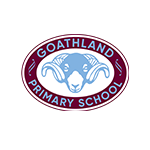Our curriculum is based around the National Curriculum 2014 – follow this link to the Department of Education website.
Overview
The National Curriculum is a set of subjects and standards used by primary and secondary schools so all children learn the same things. It covers what subjects are taught and the standards children should reach in each subject. Our school curriculum is the environment in which we operate: it encompasses the National Curriculum plus all the other things which are taught and experienced at Goathland School.
Our school curriculum is engaging, high quality, inclusive, aspirational and is firmly underpinned by our Vision Statement. Our children are well supported in their learning so that they become ”confident, ambitious and ready for the world.”
Esk Valley Alliance
Our school is a member of the Esk Valley Alliance (EVA) and our staff work across 8 similar Esk Valley Core Schools, with each teacher taking responsibility for planning a subject. We have adapted a shared curriculum plan over a four year rolling programme which meets the challenges of small classes and mixed age groups, and enables us to share good practice, resources, trips and outings and provides an excellent broad and balanced education for our children. Our curriculum recognises the wealth of opportunities provided by our local area as well as recognising those areas that are challenging due to our locality.
Our Curriculum
Please expand the topics below for more information
